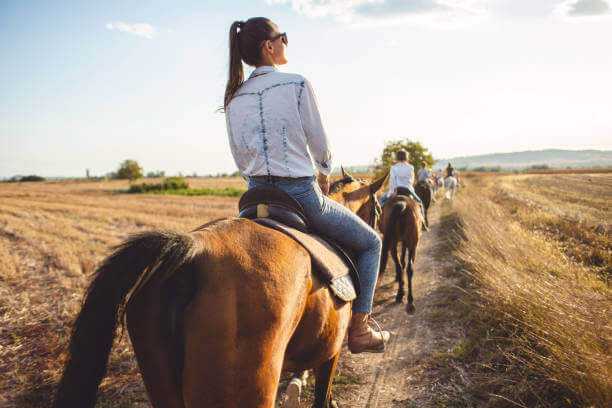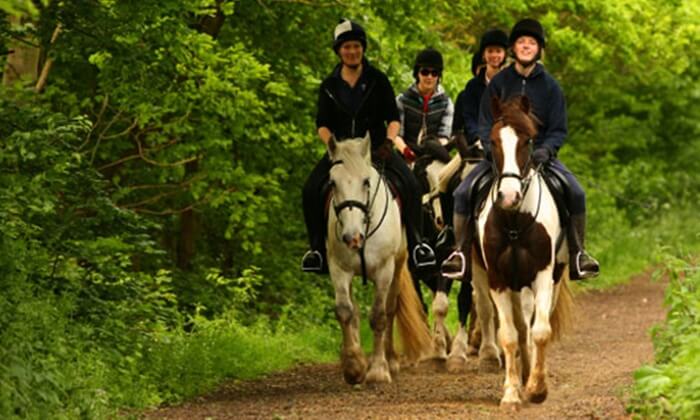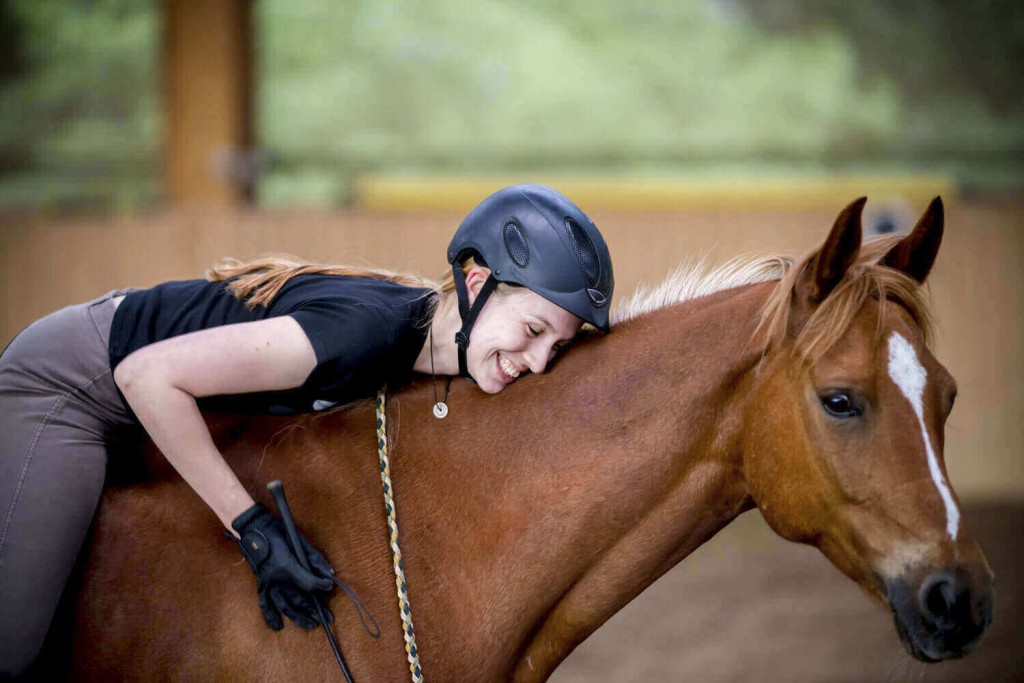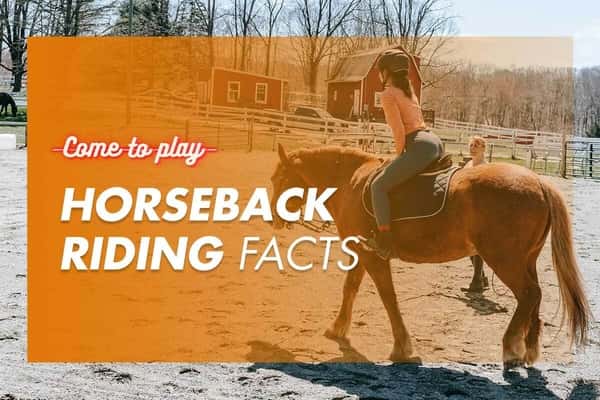Horseback riding has been one of the most popular sports in the world since ancient times.
If you’re a fan of equestrian sports, you might want to know some of these lesser-known horseback riding facts.
Let’s dive in.
5 Interesting Facts About Horseback Riding
- Horseback riding benefits your psychological health.
- The fastest gallop ever recorded is 55 mph (approximately 88.5 km/h).
- Horses are considered adults when they turn 4 years.
- In 2021, 264 800 British people participated in horseback riding sports in the UK.
- In the 2019/2020 season, the annual turnover of on-course horse racing bets in the UK was £184.97 million.
Historical Facts about Horse Riding
1. Horseback riding dates back to 4500 BC.
(Statelinetack)
Horseback riding dates back to prehistoric times when people used horses for warfare, pulling carts, and even as a means of transportation. It is believed that the first people who started using and domesticating horses lived in 6000 BC.
Today, horseback riding is mostly a recreational and sporting activity.
2. The first equestrian sports were chariot races and horse races.
(International Olympic Committee)
The first equestrian sports were introduced at the Olympic Games in ancient Greece. The most popular and long-lasting event at the Ancient Games was the four-horse chariot race.
3. Riding was first introduced in the 1900 Olympic Games.
(The Spruce Pets) (Racing Post)
Riding debuted in the 1900 Olympics and reappeared later in 1912.
Until 1952, only the commissioned officers were allowed to participate in the equestrian Olympic sports. The rules eventually changed to allow civilians to take part in the competition.
Today, both women and men compete in three Olympic equestrian events: dressage, showjumping, and three-day eventing. In addition, the competitors can ride a male horse or a female horse.
Horse Riding Facts

4. The fastest gallop ever recorded is 55 mph (approximately 88.5 km/h).
(Pink Flamingo Stables, Pet Keen)
The gallop, which is the fastest gait of a horse, averages 27 mph (around 43.5 km/h), with a rider on the back. The speed of the canter and the trot, on the other hand, varies between 10 and 17 mph (16-27 km/h).
5. Horseback riding benefits your psychological health.
(The British Horse Society)
According to a study by The British Horse Society, 80% of people who went horseback riding reported feeling “extremely cheerful, relaxed, happy, or active.”
On top of that, there are many other benefits to being a part of one of the best sports to do alone. It’s a physically demanding sport that requires taking on a lot of responsibility, including horse grooming and care, and can improve problem-solving skills.
6. Horses are considered adults when they turn 4 years.
(Local Riding)
A horse is not considered an adult until it turns 4, but this can vary depending on the region and the discipline they competed in. For example, in the racing world, a horse is only considered an adult when they reach the age of 5.
7. The oldest horse that was set to compete in the 2020 Tokyo Olympics dressage was 19 years old.
(Horse & Hound)
The 19-year-old Ramoneur 6 made history in 2016 at the Rio Games, when the rider, Tanya Seymour from South Africa, became the first South African dressage rider to compete in an Olympic Games event.
Unfortunately, Ramoneur 6 was removed from the 2020 Games after he was diagnosed with laminitis. He later died in 2021.
UK Horse Riding Facts

8. In 2021, 264 800 British people participated in horseback riding sports in the UK.
(Statista)
The number of Brits who take part in equestrian sports has slightly decreased in the past several years since it peaked at 331.500 participants in 2017. The sport counted 311,200 people in 2019 and 281,400 in 2020.
You might also like: Which are the oldest sports in the world?
9. There were 1.3 million regular riders in 2019.
(Beta UK)
The number of people that have ridden at least once a month in 2019 was over a million, but it was still a drop from the 1.8 million in 2015. Also, fewer households in Britain own a horse. According to the study, there are 374,000 households in Britain that own at least one horse, compared to the 446,000 in 2015.

10. There are 35 major horse events scheduled for 2022 in England.
(Horse & Hound)
While other countries may boast larger horseback riding events, England has more than 30 big equestrian events and major international championships scheduled for 2022, in dressage, flat racing, evening, and showjumping, among others.
11. In 2019, 3 million people showed interest in horseback riding sports.
(Beta UK)
A 2019 Beta UK survey recorded an increase in the number of people who have ridden a horse at least once in the 12 months prior. Compared to numbers from 2015, which showed there were 2.7 million people who tried horseback riding of any kind, in 2019, there were 3 million people who have ridden a horse at least once in one year.
12. In the 2019/2020 season, the annual turnover of on-course horse racing bets in the UK was £184.97 million.
(Statista)
The annual turnovers of on-course horse racing bets placed by Brits from April 2019 to March 2020 were lower than in previous seasons. For example, in the period from April 2018 to March 2019, they totaled £228.04 million.

You are looking for an adventure? Find out which are the best extreme sports.
13. One of the most famous horseback riders is Charlotte Dujardin.
(Horsey Hooves)
British dressage rider Charlotte Dujardin and her horse Valego set Olympic records two times in 2012 and 2016. Dujardin is also a three-time gold medal winner and is the most decorated British female Olympian of all time.
Bottom Line
Owning and riding a horse can be a lot of fun, regardless of whether you do it for recreational or competitive reasons.
The horseback riding facts show that it’s an industry with a large following that’s especially popular in the UK and has a lot more to offer than you might think.
You may also be interested in:

